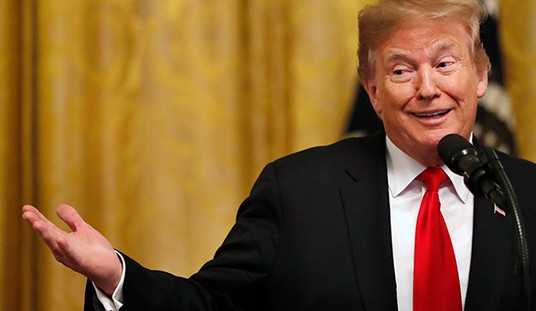“You ask what is our aim? I can answer in one word. It is victory. Victory at all costs — Victory in spite of all terrors — Victory, however long and hard the road may be, for without victory there is no survival.”
— Winston Churchill, House of Commons, May 13, 1940
With the Syria debate spiraling into confusion over what the president really wants to do, and whether he really wants to do it, we are hearing a lot right now about how war weary Americans are. Leading from in front in this talk is President Obama himself. On August 31, in the same statement in which he announced his decision that the U.S. “should take military action against Syrian regime targets,” he went on to say, “I know well that we are weary of war. We’ve ended one war in Iraq. We’re ending another in Afghanistan.”
He then handed the issue to Congress, left for Sweden and Russia, and upon return, in his weekly address, sounded the same note of fatigue: “I know that the American people are weary after a decade of war, even as the war in Iraq has ended, and the war in Afghanistan is winding down.”
But is war weariness really the problem? America these days has a volunteer military. They and their families have borne the real burdens of war, with almost 7,000 killed in Afghanistan and Iraq, and many more injured. But, as Washington Post columnist Robert J. Samuelson points out, the heroes who have been fighting for us are a small sliver of the American population — which now numbers more than 313 million. Samuelson gets it right on this: “For most Americans the constant combat has imposed no burdens, required no sacrifices and involved no disruptions.” He further notes that the financial cost of the two wars, while substantial, has been dwarfed over the same period by the American economy’s output of goods and services — by his calculation, based on figures of the Congressional Budget Office, war spending equaled nine-tenths of one percent of American production. There was no war tax. There has been no rationing.
Samuelson then draws inferences with which I disagree, saying that “these foreign military forays were a waste and in many respects have done more harm than good.” But he’s quite right that if most Americans are tired and frustrated, it is for reasons other than war.
What’s wearying is the constant message from on-high that America no longer seeks to win its wars; merely to end them. What’s exhausting is the bath of euphemisms, from “overseas contingency operations” to “violent extremists” to “workplace violence.” To this we can add the grinding daily worries that come with a troubled economy, weak job market, and a growing thicket of regulations that no one seems able to contain or even keep track of. But that is not war weariness. That’s a problem of government intruding into every aspect of life, curtailing freedom at home while deflating the vision of America as a proud bulwark of freedom abroad.
Presumably the president believes that he is reassuring Americans when he qualifies his proposal for military strikes on Syria with the statement that “we’re not putting our troops in the middle of somebody else’s war.” But he is also arguing that the use of chemical weapons in Syria poses a direct threat to U.S. national security — which makes it our war. Which is it? What is it that Americans are supposed to rally around? A limited tailored strike to alter the enormously complex calculus in somebody else’s domestic contingency operation? Or would this be a blow for our side, in a war that is ultimately part of the long, proud American history of fighting to defend our freedom?
No doubt, given the option, Americans would prefer a world without war. But the world of the early 21st century does not provide that luxury. War arrived in the skies over New York and Pennsylvania and Washington 12 years ago this month — and it is not over. War came to the U.S. diplomatic post in Benghazi a year ago this month, killing a serving American ambassador for the first time in 33 years. As my colleague Michael Ledeen reminds us, Iran’s regime has been conducting a terror war against America since Tehran’s 1979 Islamic revolution. Syria’s regime is part of an axis profoundly hostile to the free world, in which Iran is making nuclear weapons, and North Korea has conducted three nuclear tests. A rising despotism in Russia ships arms to Syria and heaps insults on the American president. China, chief broker for the illicit traffic of both Iran and North Korea, is building up its military and jostling its neighbors.
What ails the American people right now is not war weariness, but the message that even where our president deems it vital to engage in war, there is no real victory to be had for America — just an ending, a winding down, or perhaps a leading from behind. What’s missing from the debate over Syria is a clear explanation and clarion call from the White House, explaining how U.S. strikes would fit into a larger strategy for victory, not over chemical weapons, but over those who would wield weapons, of any kind, against us. No, I am not calling for America to go to war against all enemies; there are many fronts on which the struggle between freedom and tyranny may be waged, But it would greatly aid the cause of a free and secure America if when we do go to war, we are rallied with the aim of victory, and fight to win.









Join the conversation as a VIP Member